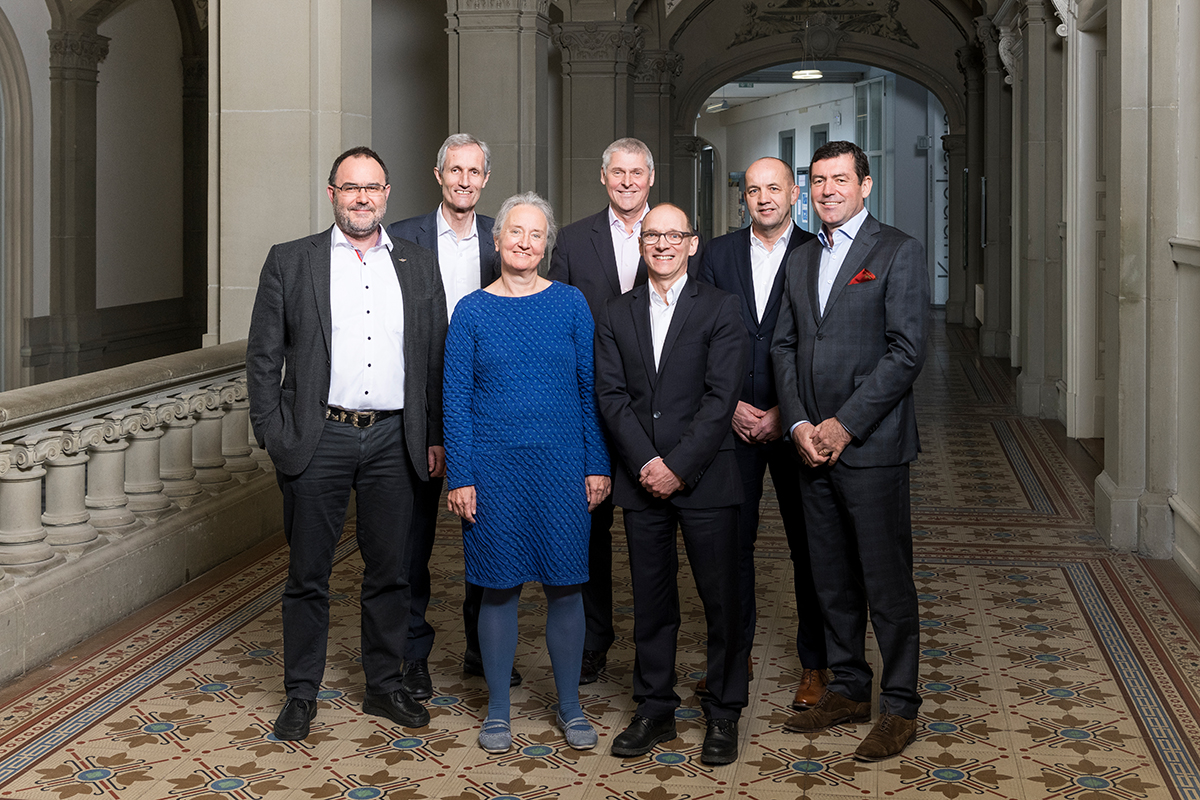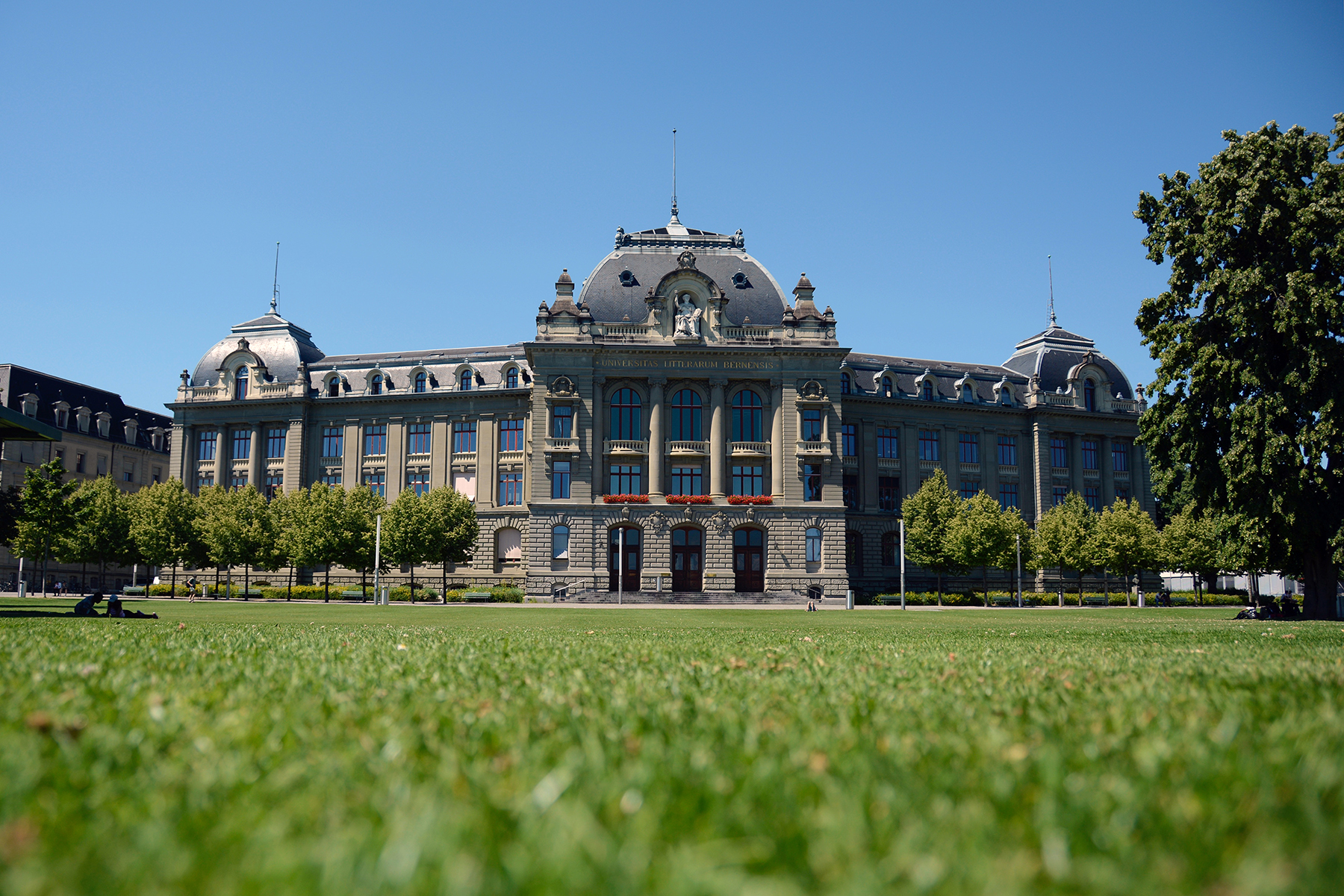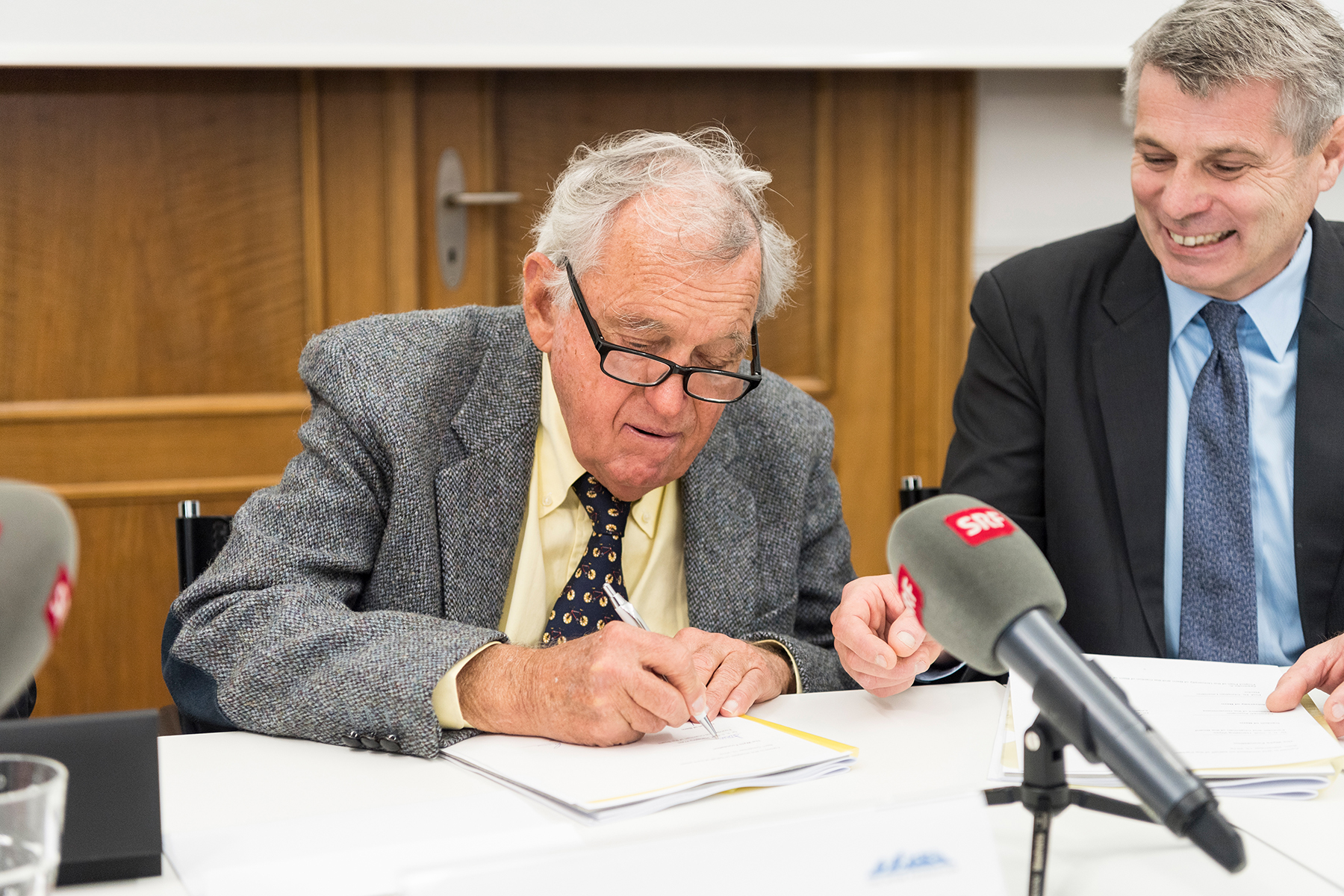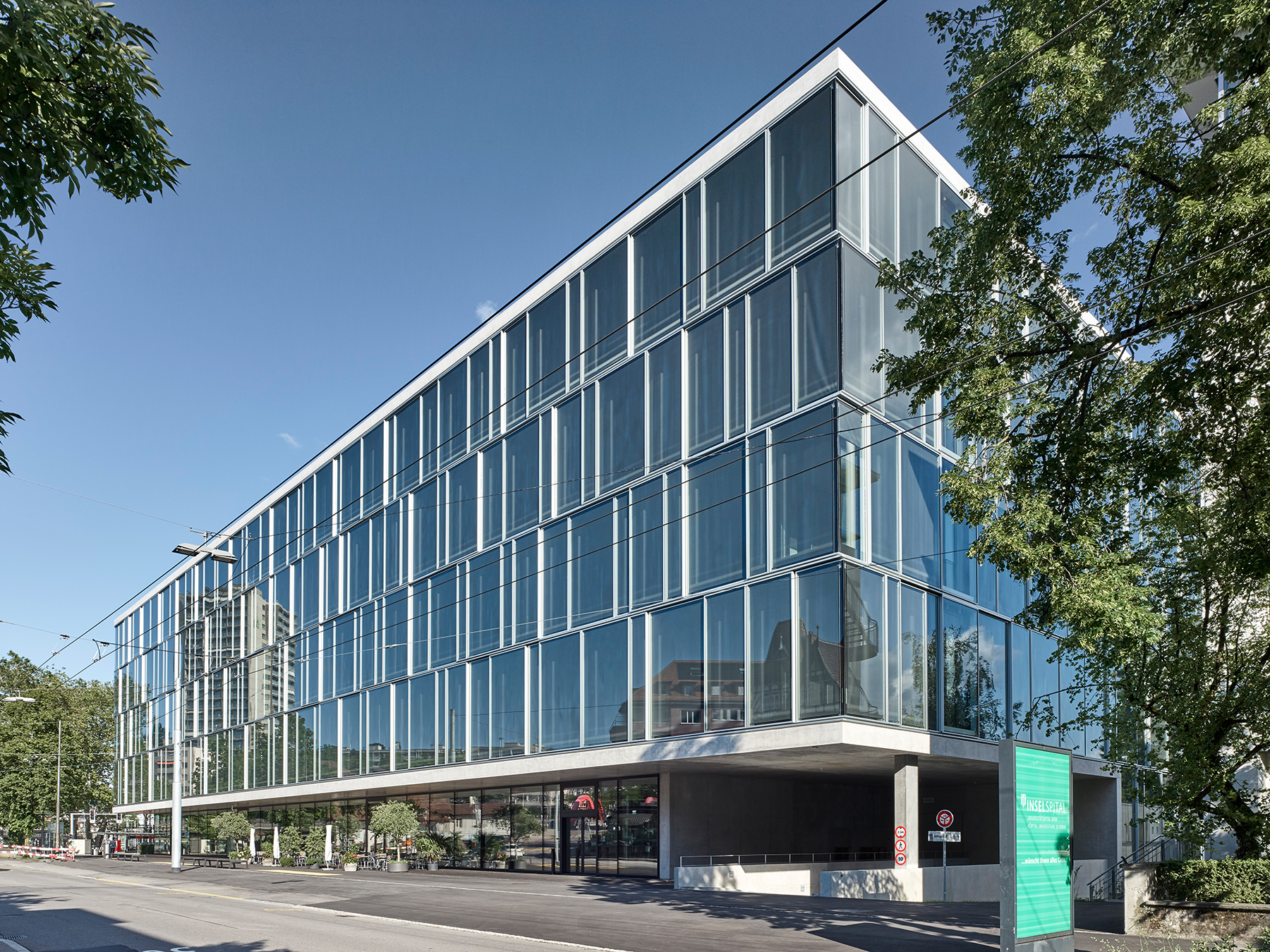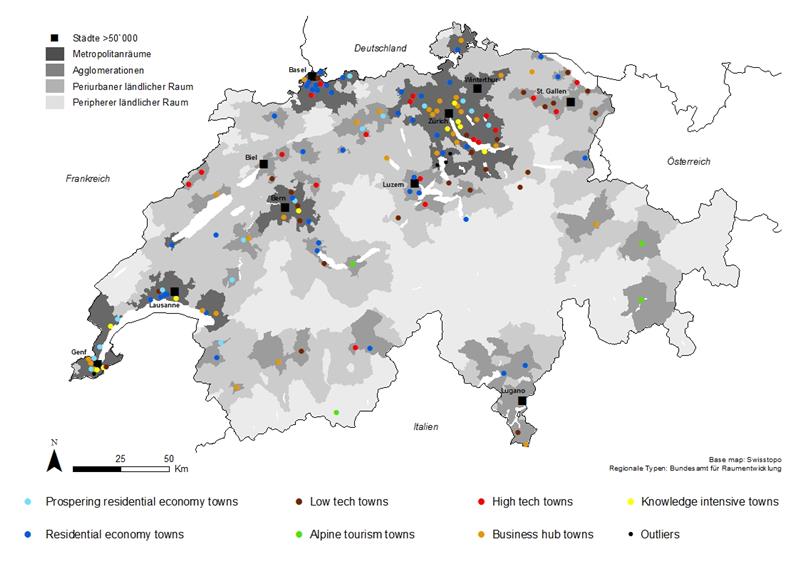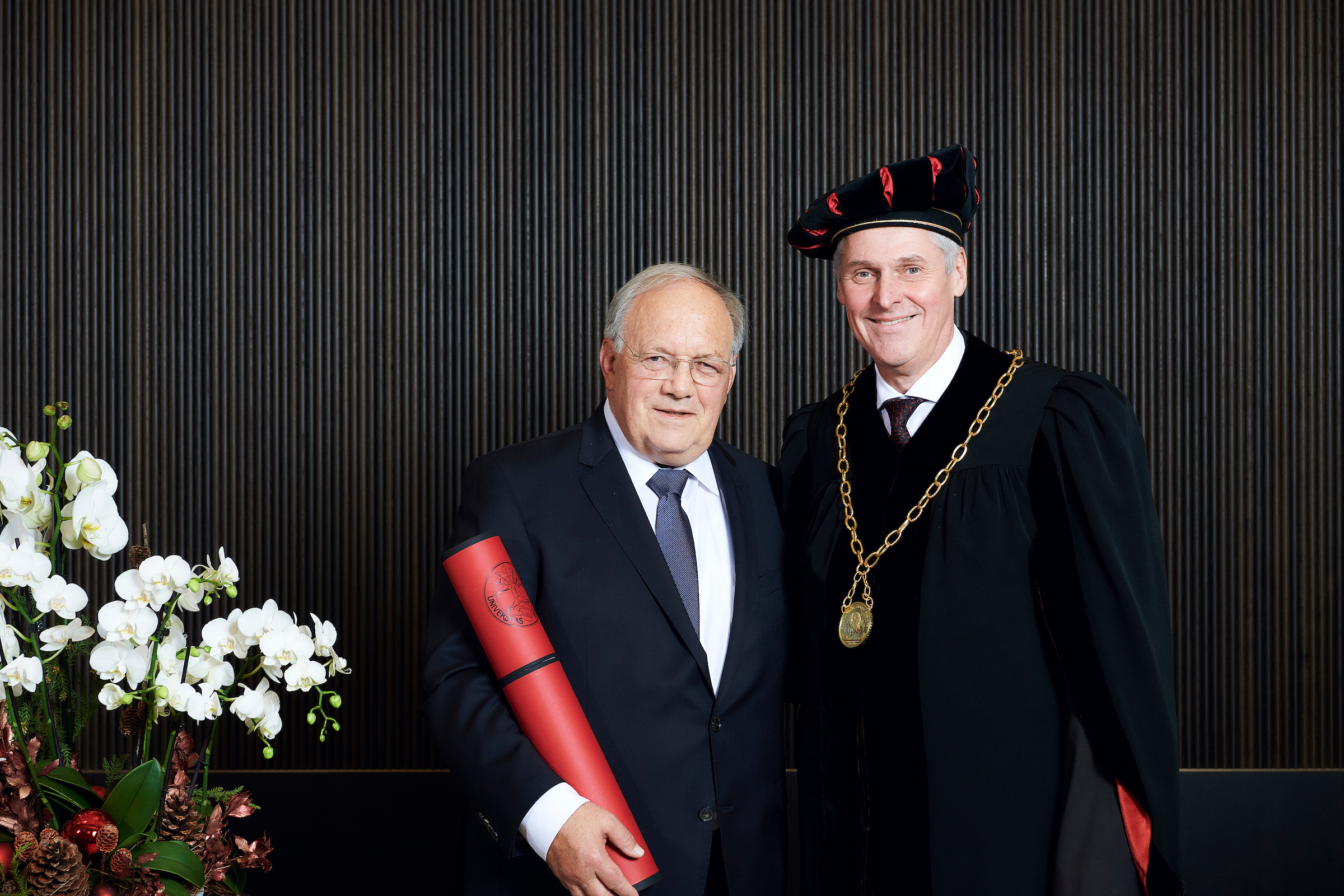2019 digital annual report: Knowledge that shapes the future
The University of Bern’s 2019 annual report has now been published in digital format for the first time. The past year was shaped by many major accomplishments such as the launch of the CHEOPS mission, the founding of the Wyss Academy for Nature and the grand opening of the sitem-insel translational center. More than 18,500 students attended the University of Bern for the first time.
“2019 was a very special and successful year for the University of Bern,” says Rector Christian Leumann in his video message in the new annual report. December 2019, for example, featured the first joint mission to space between the European Space Agency (ESA) and Switzerland under the leadership of the University of Bern in cooperation with the University of Geneva: The CHEOPS mission will investigate planets outside our solar system to determine whether the conditions there can sustain life. The internationally acclaimed sustainability research conducted at the University of Bern received another boost with the founding of the Wyss Academy for Nature. The entrepreneur and patron Hansjörg Wyss, the Canton of Bern and the University of Bern will be investing a total of CHF 200 million over the next ten years to implement specific projects on four continents, which will directly benefit nature and humans. And sitem-insel, the Swiss Institute for Translational and Entrepreneurial Medicine, marked the grand opening of yet another heavyweight for Bern as a medical location.
Digitalization strategy adopted
The digital annual report of the University of Bern presents these and numerous other highlights from the five strategic key areas in a multimedia format. The latest figures and trends of the past few years regarding students, employees and finances can be found in the figures portal. This new annual report is one of the many jigsaw pieces of the digitalization strategy we adopted in 2019, a strategy that was also instrumental in our ability to shift all teaching activities online within the space of just three days in response to the current coronavirus crisis.
Attractive for early career academics
Bruno Moretti, Vice-Rector for Teaching, is proud of the fact that “the University of Bern is at the cutting edge. Always with its sights set on providing students with an excellent starting position for their future.” That is also one of the factors driving the strong growth in the university’s student body: from 17,000 five years ago to more than 18,500 in the 2019 fall semester. The number of doctoral students, in particular, shot up by +23 percent during this period.
“The University of Bern needs strong academic talent,” says Achim Conzelmann, Vice-Rector for Development: “That’s why we made the prospects offered by an academic career in Bern more attractive last year.”
Research funding finances 2,700 additional jobs
In 2019, the University of Bern’s total revenue rose by 3.8 percent to CHF 917.5 million. The year-end result attributable to basic funding amounts to CHF 15.2 million. The canton provides basic financing of CHF 322 million (+ 1.7%). The university’s researchers were extraordinarily successful in their efforts to attract research funding (CHF 205 million, + 7.1%). “This is enough to finance approximately 2,700 additional University jobs that are not funded by the canton,” explains Administrative Director Markus Brönnimann. As one of the ten largest employers of the Canton of Bern, the university has 4,719 full-time equivalent positions held by 7,357 employees.
Push for equality
The University of Bern made inroads in 2019 on efforts to promote equality: Women were appointed to 13 of 23 new professorships. It just barely missed its goal of having 25 percent of all full professorships and professorships held by women, however. “Equality between women and men is a central mandate of the University of Bern,” says Silvia Schroer, Vice-Rector for Quality: “A systematic approach toward achieving equality will bring about new social models, a stronger economy and new perspectives in science and research.”
International network against the pandemic
According to Daniel Candinas, Vice-Rector for Research, the University of Bern relies on a strong international research network. The coronavirus crisis is revealing just how vital this collaboration is: “I am profoundly impressed by how scientists around the world are collaborating as partners to work on a vaccine against the virus, among other things.”
Space situation remains precarious
Our infrastructure situation remains extremely challenging. “We urgently need new teaching and laboratory facilities for medicine, natural sciences and veterinary medicine in order to both cover the needs arising through our growing student body and also replace the university’s aging buildings,” says Christian Leumann. This is essential for the university to remain competitive.
2020/05/18

